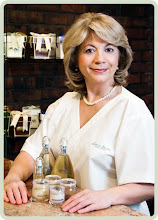One of the best ways to keep your complexion in the pink is also one of the simplest. Head straight for the produce section of your local supermarket and load up your cart with oranges. And while you’re at it, pick up plenty of greens, yellows, whites, reds, blues, and purples, too.
The Glow That Keeps Going: No Blushers, Bronzers, or Pink Tattoos Required
Each of the various pigments that give fruits and vegetables their vibrant hues is made up of a different collection of phytonutrients. Phytonutrients are antioxidant compounds that protect plants—and the people who eat them—against the free radical damage caused by excessive sun exposure, infections, and other environmental stresses.
The Brighter the Better
To help defend your skin against free radical damage, you need to regularly consume adequate doses of a full range of phytonutrients. That means your daily diet should include fruits and vegetables in each of the different color families. And whether you’re choosing peaches or tomatoes, always go for the most richly colored pieces in the produce bin. High-intensity color signals a high concentration of phytonutrients.
A Full Spectrum of Skin Benefits
Phytonutrients go to work beneath the surface of the skin to combat the visible effects of aging. By promoting the strength and suppleness of the collagen and elastin fibers in the underlying dermis, these energetic free radical fighters help stave off the wrinkles, lines, sags, and enlarged pores that can make us look old before our time. Phytonutrients also help skin retain its youthful firmness by increasing the stability of cellular membranes. Another key benefit is their ability to improve blood flow to the skin.
Include a varied palette of plant pigments in your diet to nourish your skin with these vital phytonutrients:
- · Polyphenols (flavonoids) such as the anthocyanidins found in the deep blues and purples of fruits like grapes and blueberries enhance circulatory health. Other flavonoids including those found in red peppers also have antibacterial and anti-inflammatory properties.
- · Carotenoids including beta-carotene, lutein, and lycopene protect against the harmful effects of UV radiation. Yellow/orange vegetables such as carrots and sweet potatoes; leafy greens like kale and spinach; and tomatoes and other red fruits and vegetables are good sources.
- · Allicin and quercetin are two of the important phytonutrients found in healthy white foods including garlic, apples, and onions. In addition to their antibiotic and anti-inflammatory properties, these compounds help boost collagen production.
To take full advantage of the rejuvenating power of phytonutrients, revitalize your complexion with a steady diet of plant-based organic skin care products. Any way you slice it, a healthy daily dose of these plant-derived nutrients is the perfect meal for your skin. Labels: anti-aging, anti-inflammatories, antibacterial, antioxidants, circulation, collagen, diet, free radicals, plant-based, plant-derived, skin care products


0 Comments:
Post a Comment
Subscribe to Post Comments [Atom]
<< Home